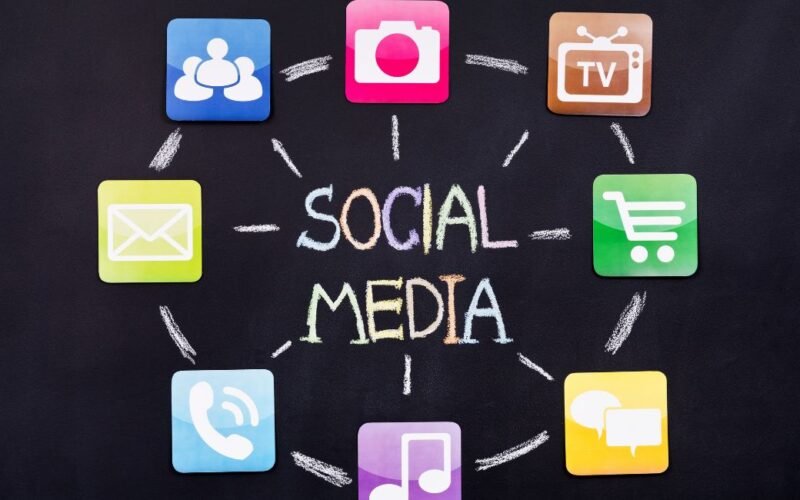In our age of technology, no one can dispute that social media platforms have become part and parcel of our daily existence.
These apps enable us to connect with friends and family members and access news and entertainment among many other things. Nonetheless, it is apparent that in the wake of constant connection and immediate gratification, there is one subtle yet momentous matter that we often overlook – the banal nature of social media apps.
Social media benality apps are game-changers for communication, information sharing, and self-expression. The popularity of Facebook, Instagram, Twitter, TikTok and Snapchat is evidenced by billions of active users worldwide. Depending on a user’s preferences, they offer different types like text-based posts, photos, videos, and live streaming.
Social Media App Banality
While social media applications provide endless opportunities for expression, they also have a downside: banality. Banality means a lack of originality or being uninteresting in what one says or does. This tendency has really taken hold over websites where people come across repetitive content, superficial interactions, and attention to surface matters only.
Content Repetition and Overload
One of the biggest causes of social media banality is content overload. Whenever millions of users are contributing posts to these platforms each day, it results in an overwhelming amount of posts videos and stories on them. This in turn ensures that there will be a cycle where similar contents, trends and challenges will dominate the feeds belonging to users thereby causing monotony.
Superficial Interactions and Approval Seeking
Another factor contributing to social media app banality involves the prevalence of shallow interactions and validation-seeking behavior. The desire for likes, comments, and followers often makes people think they are worthy on social media. Consequently, life can start being depicted as superficial when people tend to curate their content into something idealized, hence losing out on authenticity.
FOMO and Comparison Culture
Fear of Missing Out (FOMO) coupled with comparison culture worsens the problem of social media app banality. Users keep seeing selected highlights from other’s lives which leave them feeling inadequate, envious, and anxious. This culture promotes a cycle where one seeks external validation while at the same time conforming to societal norms hence reinforcing those aspects which make social media appear monotonous.
Read: Social Media App Banality of Life: A Comprehensive Overview
Mental health is affected by the shallowness of social media applications. Various studies have shown a relationship between excessive use of social media and high rates of anxiety, depression, and low self-esteem. This suggests that if used poorly, they can be detrimental to users’ psychological health due to constant exposure to idealized lives, unrealistic beauty standards as well as always comparing themselves with other people.
Understanding Boring Social Media
Being Real and True
Social sites should push people to be themselves. Share true stories from life, both wins and hard times. This helps us bond the right way. Instead of trying to seem perfect, we should accept what is real. Create different types of content on various subjects and from different viewpoints. This helps keep your feed fresh and exciting, preventing repetitive or stale content Apps and websites can offer tools to track your usage, control notifications, and remind you to take breaks from screens. These features encourage a healthy digital life balance.
Avoiding the Trap

Social media can sometimes feel dull or boring. Here are some tips to avoid getting stuck in that trap: First, be mindful of how you use social media. Second, follow accounts that share unique and interesting content. Finally, take regular breaks from social media to recharge.
Make Wise Choices
Before you begin using social media, set clear goals. Why do you want to use it? Do you want to stay informed? Connect with friends? Promote your work? Setting goals helps you stay focused. It stops you from scrolling mindlessly. Control what you see on social media. Unfollow accounts posting boring or negative things. Instead, follow people who inspire, educate, or entertain you. They can make your time online more meaningful.
Limit Your Time
Set rules for how much time you spend on social media. Stick to these rules. Use tools to track your daily usage. Give yourself set times to use social media. This stops it from becoming a mindless habit. When using social media, be present and aware. Don’t get caught up in shallow chats or seeking approval. Instead, focus on meaningful conversations, helpful feedback, and real connections. Take breaks from social media to recharge. Plan days or weekends without it. Do offline activities like being outside or hobbies that make you happy.
Stay Up-to-Date
Explore different content, viewpoints, and people on social media. Interact with creators from varied backgrounds, interests, and industries. This expands your perspective and avoids echo chambers. Show the true you on social media. Share your genuine experiences, thoughts, and feelings instead of pretending for likes and approval. Being vulnerable and authentic helps build deeper connections and meaningful interactions.
Know how social media can affect your mental well-being. Keep learning about digital well-being resources and programs. These platforms often give tools and tips for a healthier online experience. Use them to create a positive digital space for yourself.
Put Your Mind First
Value your mental health more than social media numbers. If social media makes you feel overwhelmed, anxious, or inadequate, take a break. Reach out to trusted people or consider professional help if needed. At last, show the way in your online talks. Support good things, understanding, and real feelings in your social media groups. By promoting a way of thinking about what you share and engaging in meaningful ways, you help make a healthier digital community for all.
Conclusion
If you follow these steps, people can deal with the hard parts of social media while avoiding boring things. Social media can be a great tool for connecting and expressing yourself when used thoughtfully and responsibly. Social apps changed how we chat and link. But, they also have boring bits that can affect our minds and real selves. By knowing more, using them wisely, and making true links, we can understand social apps. This way, they can be tools that help us interact and share in meaningful ways.
Also read: A Guide to Unlimited Streaming of the Buffstreams App
FAQ’S
Are you worried you use social media app banality too much?
You may have a problem if you can’t stay off social sites. Some signs are spending lots of time online, feeling upset without access, avoiding real-life tasks, and mood swings linked to social use.
How do I know if my social media app banality are unhealthy?
Your use is unhealthy if it disrupts daily routines, relationships, or mental health. Notice guilt, anxiety, or urges to check sites repeatedly. Consider getting help if you need it.
Can spending too much time on social media make me feel sad?
Yes, being addicted to social media can harm your mental health. It might make you feel worried or upset. You may start feeling bad about yourself. Your sleep could get disturbed. You may feel lonely even with friends online. It’s crucial to watch your online habits. Taking care of your mental well-being is very important.

